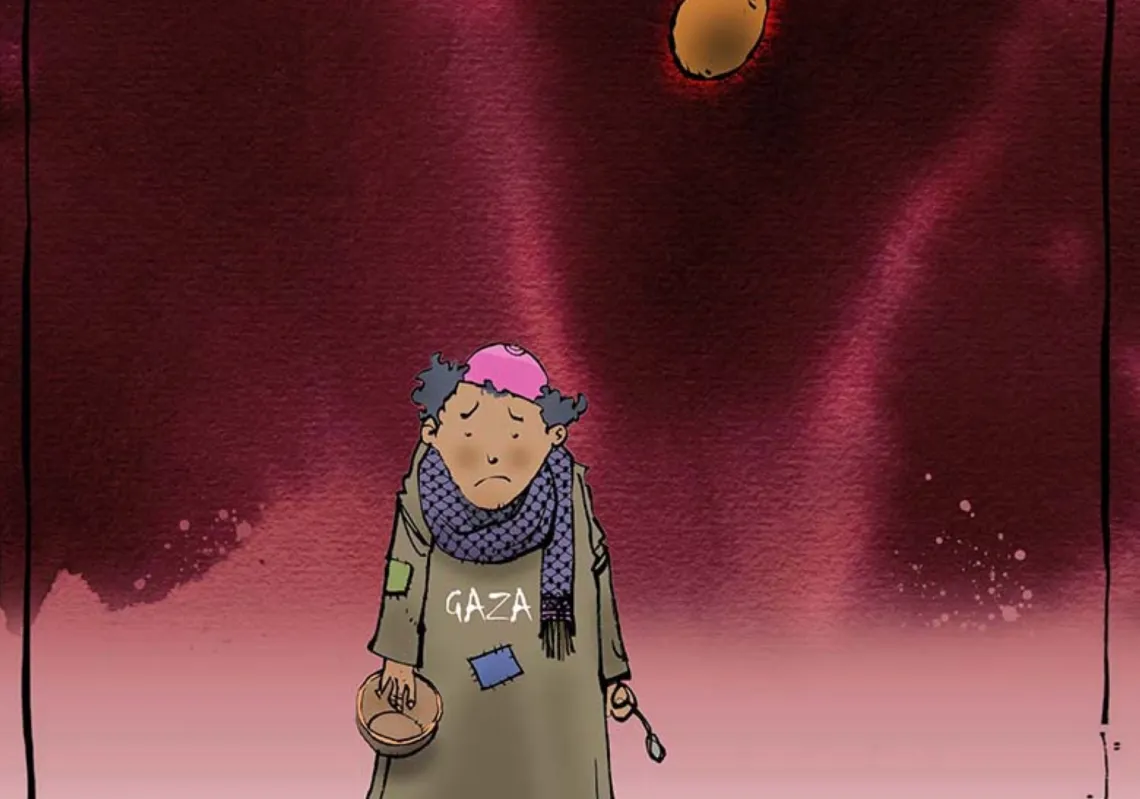If Israel doesn't stop its forced starvation campaign in Gaza, Palestinians will officially fall into outright famine, food security experts are warning. The Strip is experiencing “catastrophic” levels of hunger, and 1 million others can barely get enough food, according to findings by the Integrated Food Security Phase Classification, a leading international authority on the severity of hunger crises.
The New York Times reported on Tuesday, citing three Israeli defence officials familiar with conditions in the Strip, that Gaza could face widespread starvation if the delivery of food aid is not restored in the coming weeks.
Israel has banned all aid from entering the Palestinian territory for the past 10 weeks. This includes the basic necessities of survival like food, water, shelter, medicine and sanitation products. At the same time, it continues to pound Gaza with air strikes, killing dozens of—and sometimes up to 100— Palestinians a day. Many of the injured go on to die, due to Israel's systematic destruction of Gaza's healthcare system.
In late April, far-right Israeli minister Itamar Ben-Gvir claimed that top US Republican lawmakers supported his idea of bombing “food and aid depots” in Gaza, in a social media post. ame after the Israeli national security minister said he, after he had met with “senior Republican Party officials at US President Donald Trump’s Mar-a-Lago estate” in Florida, in the United States.
“They expressed support for my very clear position on how to act in Gaza and that the food and aid depots should be bombed in order to create military and political pressure to bring our hostages home safely,” Ben-Gvir posted on X in Hebrew. The US State Department dismissed the Israeli minister's claim, saying his remarks are a “complete contradiction” to US policy.
But while politicians are busy with claims and denials, the situation on the ground is exponentially worsening every day in Gaza, where kids are eating less than one meal a day, according to Bushra Khalidi, policy head of the aid group Oxfam.
“Kids struggling to find their next meal," she said. "Everyone is purely eating canned food ... Malnutrition and pockets of famine are definitely occurring in Gaza.”

Struggling to survive
Al Majalla confirms this in on-the-ground reporting, and says the dire situation and the fight for survival have sparked increased instances of looting. Earlier this month, a group of armed assailants stormed warehouses stocked with essential food supplies operated by community kitchens in the western districts of Gaza City.
The intruders looted all food stocks and cooking equipment—resources that had been used to provide free daily meals to hundreds of displaced residents. When staff attempted to intervene, the attackers opened heavy fire and forced their way inside, accompanied by several displaced individuals.
Operations were brought to a complete standstill by the attack, just as Gaza entered its tenth consecutive week under Israel’s total closure of all border crossings. Ahmed Hassan, a young volunteer who helped launch the initiative to provide daily meals to displaced individuals, told Al Majalla that the looting of the warehouses and community kitchens had forced the project to be suspended, depriving hundreds of families who depended on the kitchen as their only source of food.
But some of the looting may not be organic. Hassan is convinced the timing relates to ongoing Israeli threats, which appear to be intended to apply pressure to both Hamas and the broader Palestinian population.
The UN agency with a deep and long-established role in Gaza, UNRWA, issued a recent communiqué calling Israel’s blockade of food aid, medical supplies, and basic necessities a clear violation of international humanitarian law. It urged Israel, as the occupying power, to reopen the crossings, allow the entry of humanitarian assistance, and cease using food as a tool of coercion against civilians.















